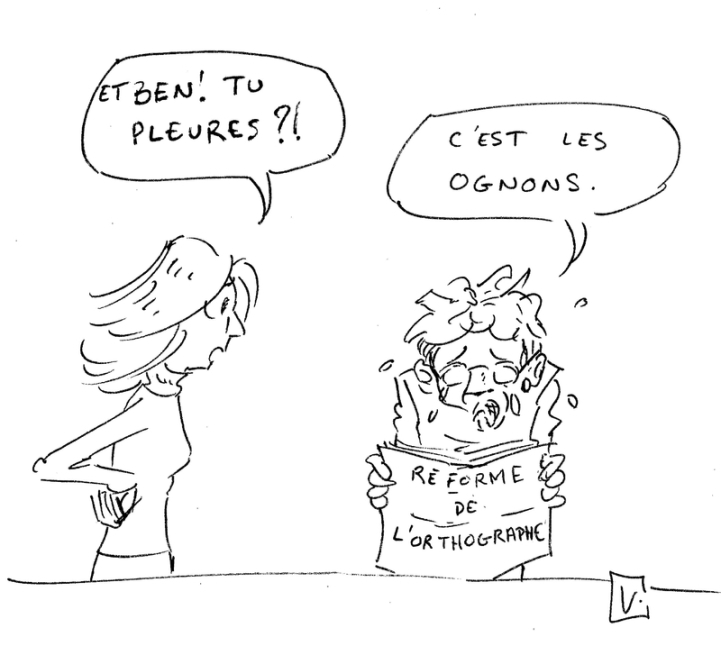Languages mostly have the little quirk of ambiguities. The spoken form assumes everybody speaks the so-called received form which is customarily the one taught by national education systems, used for official business and other domains where precision and mutual comprehension are required. However, as socio-linguists always point out it is the language used orally by only a minority. So, the balance has to be set between written and spoken forms.
We didn't have Quechua speakers when I was preparing for fieldwork in the late 1960s so I had to learn the little I ever acquired open to every imaginable bear trap, ultimately fell into them frequently. However, there were lecturers who taught quite a few African, Pacific region and a few south Asian languages. For the people preparing for East Africa where there are hundreds of languages they had the option of Kiswahili, That a Bantu language and the first language of the Swahili people, the Waswahili, who are an ethnic and cultural group that inhabiting coastal areas of the African Great Lakes region. Kiswahili is the first language of up to fifteen million people otherwise used as a lingua franca in much of south east Africa by varying estimates of 60 to over 150 million. So, much of that part of Africa, including Tanzania, Kenya, Uganda, Rwanda, Burundi, Mozambique and the Congo region; used as the national language in four of them, alongside English as the official language in three. Many of the people in the coastal areas learn English as well so there are hundreds of local, distinct languages, some totally disconnected with each other, and the lingua franca most use outside of their own language room.
Now what has that example to do with French. Well it is in the evolution of language where it comes in. French is a Romance language within the Indo-European language family that evolved out of the Gallo-Romance dialects spoken in what is now northern France. Socio-linguistically French is also a Germanic language. It is one that has several roots. Well before the time of Charlemagne, Karl der Große, or whatever one wants to call him, consolidated his Frankish empire around his capital Cologne, Köln, or as his court would have called it Colonia Claudia Ara Agrippinensium, at the beginning of the ninth century throughout the entire Frankish world there was a language somewhat like modern Rumantsch, the Swiss minority language, which originates from spoken Latin brought to the region by the Romans in what is nnow the Graubünden canton after 15 BC. Before the invasion Celtic and Raetic languages were spoken as they were almost entirely throughout northern Europe. Over time and by the time the Roman empire went into decline Indo-Germanic languages were penetrating and eventually became the Frankish languages. It had significant influence on the Romance languages spoken in Gaul, now France. As a result, many modern French words and place names, including the country name France are of Germanic origin. Frankreich still in German.
Look at maps of the empire and those that show language. Reims was a Frankish city and Paris probably mixed, one gets right over to Aquitaine and Gascogny before it is properly a Romance speaking area. But even then they would have been very influence by Ibero-Celtic languages There would have been the influences of pre-Indo-European languages of which Basque is the last survivor in western Europe in the west and the gradual influx of German-Nordic people next to purely Celtic speakers in the north west. The closer to the declining Roan empire the stronger Latin ifluence.
The outcome is that France has its own Kiswahili in the modern world but that something equivalent to the tribal first languages semi-survive, in some case survive reasonably intact. Therefore there is no such thing as a single French language really. What is being changed is the received form that is used as the lingua franca in written form especially. Now given how much other languages have changed, for instance the logically impossible mix that made up English, what is being reformed is simply following the steps of other languages. Early English had more accents than one might imagine. They are still used to direct emphases for reading poetry or singing, for instance opera, but very rarely in normal written forms. Getting rid of them entirely and speakers instinctively knowing what is what, when and how and being able to tell what written forms mean is probably an inevitable progression. French is not the most accented by far, some of the Slavonic and Turkic languages have a large number, the Uralic languages in the Ugric group including Hungarian are extensively accented. However, they do sometimes print things without any accents for the sakes of simplicity and as they adapt to electronic media that is happening more often. The particular lingua franca we have about us here is carefully treading that path so that in X decades (centuries?) it will all be gone.
